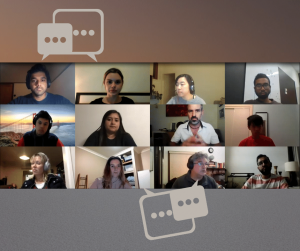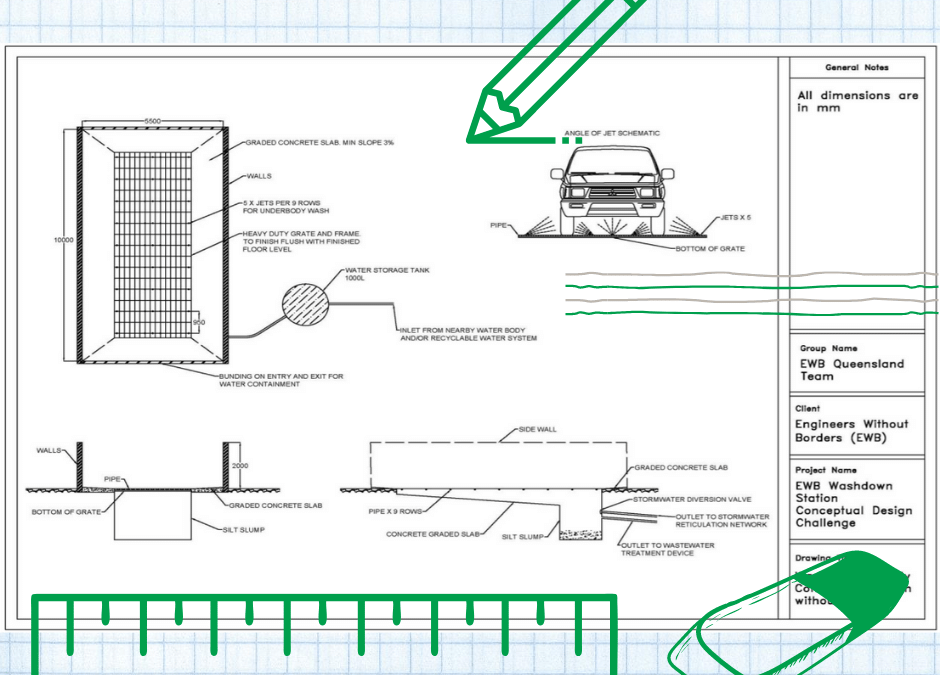Program Re-think Opens Up Valuable New Opportunities For Supporting Remote Indigenous Communities
Due to COVID-19, access to remote Indigenous communities in Australia has been restricted, resulting in Engineers Without Borders Australia (EWB) withdrawing face-to-face Engineering On Country program activities. But that doesn’t mean our work has stopped. This International Day of the World’s Indigenous Peoples (August 9th), and in the midst of a pandemic, we know it is more important than ever to actively support Indigenous communities.
COVID-19 presents a new risk to Indigenous people; identified as some of the most vulnerable to complications arising from COVID-19. It is imperative to keep Indigenous communities, and specifically its elders, safe. They are the knowledge keepers – of languages, plant medicines, dreamtime and songlines – and we need to protect these traditions. Closing community gates, and state and territory borders has helped to mitigate the spread of COVID-19 into these communities, and is a decision supported broadly across all stakeholders.
When the pandemic landed in Australia, EWB withdrew in-community activity that was a key part of our Engineering On Country program. An urgent program rethink was required to continue delivering our mission of using engineering as a critical enabler of sustainable development for Aboriginal and Torres Strait Islander people.
Determined not to lose momentum, EWB Australia fast-tracked the trial of new ways of supporting community partners through remote technology development projects. These new ways of working include:
- Coordinating remote technical support volunteer teams;
- Continuation of pro bono engineering design support, via desktop;
- Launching open technology development challenges for volunteers to contribute meaningfully; and
- Providing EWB in-house professional services.
Kim Axworthy, EWB’s EOC Program Manager, says this unanticipated shift has opened up valuable new opportunities for the EOC program.
“These projects link skilled professionals and EWB staff expertise to develop products and solutions to technical problems identified by EWB’s Aboriginal and Torres Strait Islander partner organisations. We are creating new knowledge and approaches in engineering innovation and technology to continue to benefit remote communities during the pandemic, whilst supporting the key aims of the Engineering On Country Program,” says Kim.
Unique new way to support Engineering On Country projects: the open technology development challenge
EWB’s National Mobilisation Facilitator Danielle Kirby has played an integral part to develop EWB’s Mobilisation function over the past 8 months, working with Shenuka Peiris, EWB’s Mobilisation Officer, to ensure that EWB’s ‘Technology Development and Engineering On Country’ challenges have access to skilled, knowledgeable, and engaged volunteers to support impact delivery.

Danielle Kirby, EWB National Mobilisation Facilitator, connects our volunteers to mobilisation projects
“I applied for this role as I know there are many engineers and engineering students out there that want to use their skills for humanitarian purposes, but sometimes don’t know how. I want to help bridge that gap,” says Danielle.
“The best thing about Mobilisation is enabling project teams of all different skill-sets and levels of experience to come together and create a design they are proud of. I love that teams with exactly the same project brief always come up with completely different designs,” added Danielle.
Mobilisation projects primarily concentrate on conceptual design, responding to a project brief put together by other functions within EWB, galvanising project teams to work together to produce a design that responds to the criteria of the project brief. Teams work remotely, communicating through platforms such as Slack and Zoom.
This month, Mobilisation teams from Western Australia, New South Wales, and Queensland presented their designs for the development of an off-grid, weed washdown facility to EWB community partner, the Centre for Appropriate Technology (CfAT).

Volunteers and facilitators meet to discuss the project
Fourteen student and professional volunteers formed teams, guided by facilitators, and were tasked with designing a vehicle wash down facility that responded to the issue of weed control on remote Indigenous homelands – cited as a continual challenge to the preservation of biodiversity on Country.
Vehicles that enter Indigenous homelands – due to tourism or road construction – introduce and spread seeds, creating a proliferation of weeds along the road verges. Controlling these weeds consumes a large amount of Indigenous rangers’ time. Vehicle wash down facilities (that vehicles drive over and have seed blasted off the underside and sides of the vehicle with water), are regularly touted by ranger programs as a desired installation for key access points to Country. They are seen as an effective way of removing seeds from vehicles coming on to Country and controlling the spread of weeds.
Key to approaching the project design brief was ensuring that the volunteers addressing this challenge have a deep understanding of the Indigenous context. EWB’s Education & Research team, as part of our program scoping process, spent time with community members in the Cape York region, alongside our local community partner, to really listen to and understand the needs of these communities, and the context in which to work in, in order to build a brief that will have a meaningful, sustainable impact.
“Volunteers not only enjoy the engineering aspects of creating their designs but also taking the time to understand the community in which the project will be implemented with this human-centred approach,” says Danielle.
“The EWB washdown mobilisation is a great start to tackling what is a fundamental challenge for Indigenous Rangers across Australia. Every ranger program wants washdown stations for weed control – so if we can create something that is more readily deployable and maintainable to stop these weeds spreading in the first place, then we have a big winner on our hands,” says Andre Grant, Regional Manager, Queensland, Centre for Appropriate Technology.
Despite the challenges of COVID-19, the commitment and creativity of EOC corporate partners, community partners, and EWB Mobilisation volunteers has ensured that EWB Australia continues to redefine the purpose and impact of engineering through collaboration, education and implementation of projects that serve.
If your organisation is interested in providing pro bono professional services to remote Aboriginal and Torres Strait Islander communities as part of our Engineering On Country program, please get in touch with program manager, Kim Axworthy. Or, if you’re a professional engineer keen to contribute to one of our projects, sign up here to learn more.
References:
Article: Northern Territory steps up coronavirus plan as Indigenous communities face severe risk


